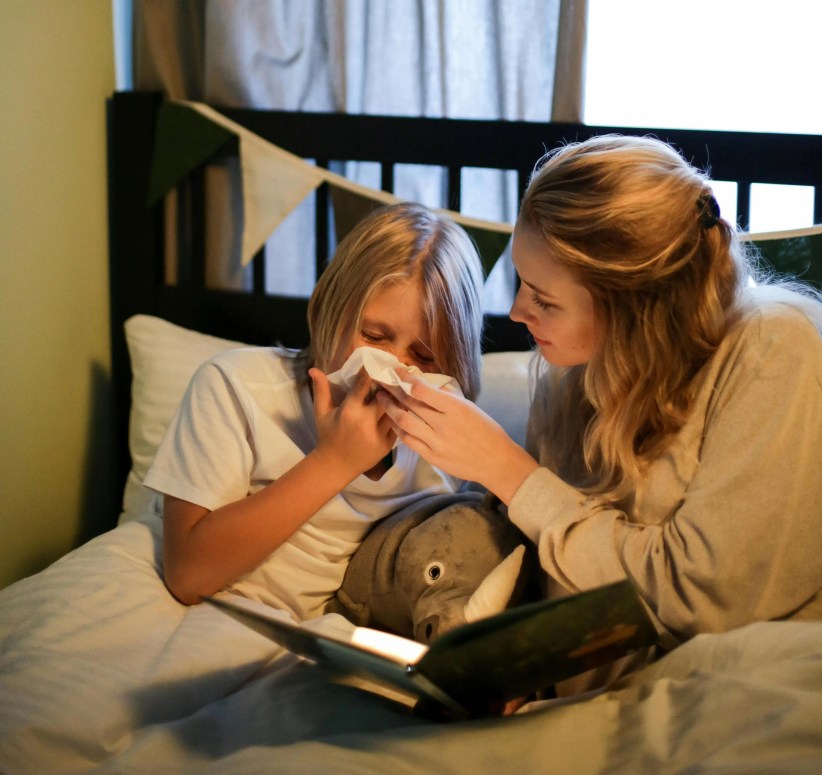Kids, delayed or not, have their own agenda when it comes to food. Parents are, rightfully, concerned about the nutrients and calories that make up long-term health, but such things do not concern children. Parents speak the language of words and think about the future. Little children speak the language of gestures and think in terms of now. No wonder communication channels break down at the table.
The trick to better meals is to see what is behind the behavior on both sides. Children instinctively anticipate that parents understand their developmental drives and behaviors, but delays can cloud the child’s signals, as was the case with a wheelchair-bound child we’ll call Ruedo.
Ruedo had a muscular condition that left him with very poor muscle control below the neck. He could guide his wheelchair by moving a joystick between his right thumb and forefinger, but it was clear that he had very limited use of his hands. Above his shoulders, though, everything worked fine. After getting settled and arranged, he and his mother sat down by my desk.
The mother told me Ruedo did not eat, was picky, and refused most foods. It was no surprise he was underweight. As we started to talk, the mother began to cry. After a few minutes, she wiped her eyes. I waited, listening, until she composed herself. We went back to the task at hand.
“I see he has many challenges,” I said, “but, tell me, can he get a cookie out of you?” She smiled, then she laughed. “Yes!” she said grinning. I knew now we could make some headway. Mom had moved from the world of worry to the world of possibility. She recognized Ruedo’s strengths.
I had already seen that children with varying degrees of delay know how to manipulate their parents as well as typically developing children when it comes to treats. To me, it is a sign of mental health. The response to the ploy is up to the parents. Some parents may think, “Why not give them what they want? The child is already suffering. He hardly eats anything.”
Well, the child may not be suffering. Certainly, the child will suffer as he grows to understand himself in relation to others. In the moment of worming cookies out of parents, though, the child is not suffering. The child is doing what all little children do once they have figured out the weak points of their parents. The fundamental issue that worried the mom was the usual concern of parents when they lose control of the daily meals and snacks. Instead of thinking about healthy foods, they focus on some aspect of the delay.
Once mom and I tacitly agreed that we were talking about a parenting problem, we talked about the feeding relationship, a parenting approach to nutrition. The rule governing feeding relationships is pretty simple: the parent provides; the child decides. In Ruedo’s case, no one addressed Ruedo’s hard-wired drive to self-feed. Mom understood the rule, but it would take time to work out a way to solve his particular needs.
The better therapists address the parenting process along with remediation. The parenting job includes the basics, such as modeling at the table, eliminating the baby bottle, helping the child use a cup to the extent possible, and the judicious use of “no” and “yes” for treats.
When children learn that parents provide, and that they decide, mealtimes go smoother. Pickiness and refusals can abate. Sometimes, sensory delays will weaken. It can be complicated to apply the feeding rule in the presence of delays, but not impossible. The reasons to try it are practical and emotional.
Sameroff, a psychologist, finds that parents of delayed children need the three R’s: Remediation, Redefinition and Reeducation. Remediation refers to optimal remediation of the delay. Redefinition describes the change in thinking that allows parenting strengths to come into play by minimizing any overwhelming aspects of the disability. He finds that parents’ attitudes can affect the child’s ability to overcome. In the case of nutrition, it means minimizing struggles. Otherwise, the emotional fallout of routinely distressing meals grows unchecked. Love gets buried.
Lastly, parents have to learn about what’s behind the struggles. Learning about hunger, readiness, and satiety cues is essential. Parents who see standard emotional behaviors catch their deeper meaning. It becomes easier to apply basic parenting skills. We love our children, and calm mealtimes support that love.
Richard Kahn, PhD, RD, is a New York City pediatric nutritionist in private practice specializing in the needs of young children. Reach him at childnutrition@verizon.net or RichardKahnNutrition.com.

























